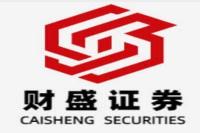Decoding the Hong Kong Market: A Deep Dive into Semiconductor Stocks and EV Giants – Is Now the Time to Invest?
Meta Description: Hong Kong stock market analysis, semiconductor stocks (SMIC, Hua Hong Semiconductor), electric vehicle (EV) giants (NIO), investment strategies, market trends, expert insights.
Whoa, Nelly! The Hong Kong stock market is a wild ride, isn't it? One minute it's soaring, the next it's taking a nosedive. But for savvy investors, understanding the nuances of this dynamic market can unlock incredible opportunities. This isn't just another market report; it's a deep dive into the heart of the Hong Kong exchange, focusing on the electrifying performance of semiconductor players and the ever-evolving EV sector. We’ll unravel the complexities, explore the potential pitfalls, and arm you with the knowledge to make informed decisions. Forget dry market summaries; we’re talking real-world analysis, seasoned with years of experience and sprinkled with insider tips. This isn't a get-rich-quick scheme, but a strategic roadmap for navigating the thrilling landscape of Hong Kong's financial world. We’ll dissect the recent market movements, examining the stellar performance of companies like Semiconductor Manufacturing International Corporation (SMIC), Hua Hong Semiconductor, and the electric vehicle powerhouse, NIO. We'll analyze the factors driving their growth, assess the risks involved, and ultimately help you determine if now is the right time to join the party. Get ready to sharpen your investing acumen and embark on a journey into the exciting world of Hong Kong equities! Prepare for a rollercoaster of insights, expert opinions, and actionable strategies that will leave you feeling empowered and ready to tackle the market head-on. Let's dive in!
Semiconductor Stocks: A Booming Sector in Hong Kong
The recent surge in Hong Kong's semiconductor sector is nothing short of spectacular. Companies like SMIC and Hua Hong Semiconductor have seen impressive gains, leaving many investors wondering, "What's the deal?" Well, several factors are at play. Firstly, the global demand for semiconductors remains incredibly strong, fueled by the insatiable appetite for electronics, automobiles, and other tech-driven products. This unprecedented demand has created a supply shortage, driving up prices and boosting the profitability of these key players.
Secondly, China's commitment to technological self-reliance is a significant catalyst. The government's focus on developing domestic semiconductor capabilities is providing a powerful tailwind for companies like SMIC and Hua Hong Semiconductor, leading to increased investment and government support. This strategic push is not just about national pride; it's about economic security and global competitiveness.
However, it's not all sunshine and rainbows. The semiconductor industry is notoriously cyclical, and supply chain disruptions remain a concern. Geopolitical tensions and trade wars could also impact the sector's growth trajectory. Investing in semiconductor stocks requires a long-term perspective, careful risk assessment, and a deep understanding of the industry's dynamics. Furthermore, competition is fierce, with global players vying for market share. It's crucial to do your due diligence and analyze the financial health, technological capabilities, and management expertise of each company before making any investment decisions.
Analyzing SMIC and Hua Hong Semiconductor: A Comparative Look
| Feature | SMIC | Hua Hong Semiconductor |
|-----------------|------------------------------------|------------------------------------------|
| Market Cap (approx.) | Significantly Larger | Smaller |
| Technology Focus | Broad range of semiconductor nodes, including advanced nodes | Specialty technologies, focuses on mature nodes |
| Growth Potential | High, driven by government support and global demand | Solid, but potentially less volatile than SMIC |
| Risk | Higher due to geopolitical factors and technological challenges | Moderate, but susceptible to industry cycles |
This table provides a snapshot comparison – a more comprehensive analysis requires in-depth research into each company's financial statements and future plans. Remember to consult financial professionals before making investment decisions.
Electric Vehicles (EVs) and the Rise of NIO
NIO, a leading electric vehicle manufacturer, has also experienced significant growth in the Hong Kong market. Its innovative designs, technological advancements, and expanding charging infrastructure have fueled its impressive performance. The global shift towards electric mobility is creating a massive opportunity for EV companies, and NIO is well-positioned to capitalize on this trend. However, the EV market is highly competitive, with established automakers and new entrants vying for market share. Government regulations, battery technology advancements, and consumer preferences are all crucial factors that can impact the sector's future growth.
Navigating the EV Market: Risks and Opportunities
Investing in the EV sector presents both significant opportunities and substantial risks. The rapid pace of technological innovation and the evolving regulatory landscape require a keen eye for detail and a willingness to adapt. Battery technology is particularly crucial, impacting both the performance and cost of EVs. The development of more efficient and affordable batteries is essential for the widespread adoption of EVs. Furthermore, the charging infrastructure is another key factor. Extensive charging networks are crucial for making EVs a practical choice for consumers.
Frequently Asked Questions (FAQs)
Q1: Is now a good time to invest in Hong Kong stocks?
A1: The Hong Kong market is inherently volatile. While certain sectors, like semiconductors and EVs, show promising growth, it's crucial to conduct thorough research, assess your risk tolerance, and diversify your portfolio. No one can predict the future of the market, so smart investment choices involve careful consideration of individual stock performance and market trends.
Q2: What are the major risks associated with investing in Hong Kong?
A2: Geopolitical factors, regulatory changes, and market volatility are all significant risks. The Hong Kong market is sensitive to global economic conditions and can experience sharp fluctuations. Always consider a well-diversified portfolio and consult with a financial advisor.
Q3: How can I learn more about Hong Kong stocks?
A3: Numerous resources are available, including reputable financial news websites, market analysis reports, and company filings. You should also consider seeking guidance from a qualified financial advisor.
Q4: Are there any specific regulations I should be aware of when investing in Hong Kong?
A4: Yes, understanding the Securities and Futures Ordinance and other relevant regulations is crucial. It's advisable to consult with legal and financial professionals to ensure compliance.
Q5: What is the role of government policy in shaping the Hong Kong market?
A5: Government policies significantly impact various sectors, particularly through initiatives promoting technological development and sustainable growth. Understanding government strategies is key to informed investment decisions.
Q6: What are the long-term prospects for the Hong Kong stock market?
A6: The long-term outlook depends on multiple global and local factors. While the market presents opportunities, thorough research and risk management are vital for navigating its complexities. Hong Kong's position as an international financial hub suggests some potential for long-term growth, but this is not guaranteed.
Conclusion: A Calculated Approach to Hong Kong Investing
The Hong Kong stock market is a dynamic and exciting environment, offering both substantial opportunities and significant risks. By carefully analyzing market trends, understanding the strengths and weaknesses of individual companies, and diversifying your portfolio, you can increase your chances of success. Remember, thorough due diligence, a long-term perspective, and expert advice are essential components of a successful investment strategy in the Hong Kong market. Don't gamble; invest wisely!



